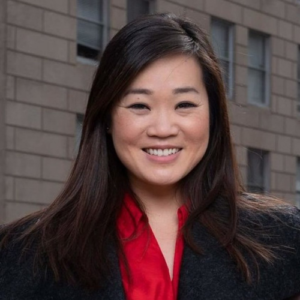Here, we chat with PubMatic’s Director, Customer Success, APAC Tina Tsang about all things diversity, confidence and leadership.
Can you tell me a bit about your role and your professional journey so far?
I’m currently the Director, Customer Success APAC at PubMatic. In this role I lead the Customer Success teams across this region, including ANZ, Japan, SE Asia, Greater China & Korea and India. I’ve been in this role for 8 months and prior to that, I was responsible for the ANZ market, supporting some of our publisher partners here. I’ve been with PubMatic for close to 6 years now, starting as a Strategic Account Manager in the London office and working my way up to this role. I’m grateful for the opportunities that the business has provided me. Prior to this, I’ve had experience working with a UK data provider, ad networks and on publisher-side too.
What do you think the Australian media/technology industry does well when it comes to promoting diversity?
I think that the industry here is very aware of the need for diversity and as such, has made considerable efforts to ensure that there is better representation. The nature of our industry allows us to be adaptable and see these changes happen quickly, which is great.
Working in advertising, we are uniquely positioned to also influence societal change. Marketing and advertising play a huge role in shaping our perceptions – the advertising we’re exposed to every day paints a picture of society and influences how we view ourselves and those around us.
What do we do not so well? Are there any other countries/regions we could look at as an example?
As a minority woman in the industry, I think there’s still room for improvement, especially in mentoring women and minorities on securing leadership roles. I’m passionate about inspiring the next generation who are either starting or trying to raise their profiles and further develop their careers. Whilst progress has been made, representation of minority women at senior levels is more ‘token’ than ‘the norm’.
How does PubMatic work to create a diverse and inclusive culture?
I feel that PubMatic already has quite a diverse and inclusive culture, but we still created a Diversity, Equity & Inclusion council a year ago, with representatives across all regions actively involved, to help all employees feel empowered, and to drive our external initiatives to take active steps to support equal opportunities across the industry. PubMatic recently launched an initiative to support minority-owned businesses in our vendor contracts.
As a company, we are actively seeking out ways to encourage diversity and inclusion of ideas and people – creating a high trust and high-performance workplace.
The council has multiple committees focused on a range of issues such as anti-racism, community partnerships, gender inclusion and vendor inclusion.
How would you describe your leadership style?
You’d have to ask my team! But I feel I’m probably somewhere between Coach and Democratic. I definitely don’t have all the answers but will do what I can to support and motivate the team here. We have many great team members across APAC and I trust in their ability and skills.
What have been the major factors/influences in how you have shaped this leadership style?
I know exactly how it feels to be the ‘other’ and to lack the confidence in my own knowledge and experience. It’s strong enough to stop me from voicing my ideas and from speaking up in general. I recognise this behaviour in young people now and feel it’s important to try to shift their self-perception and build this confidence.
Do you have/have you had a mentor? If so, could you describe the importance of this relationship?
I’ve never had an ‘official’ mentor but have had people throughout my professional career whom I’ve been able to turn to for guidance and support. I’m a huge advocate for people to be able to identify someone to be a mentor in their life and have found the advice I’ve received from my mentors incredibly valuable.
Diversity is obviously an issue in the technology sector. What are some practical steps that you believe could be put in place today which could make a difference?
Employers recognising the lack of diversity and putting programs and policies in place that foster an environment and culture that provides equal opportunity for all employees or potential employees – in hiring, training and advancement.
For example, some time ago, PubMatic committed to hiring more female engineers in Pune and in order to encourage more women to apply, they provided a late-night taxi allowance so women who were working late coding would feel safe getting home.
How do you believe initiatives such as Women Leading Tech can help create positive change in the industry?
I think that we’re taking steps in the right direction now, and initiatives like Women Leading Tech offers an opportunity to really raise the profiles of women in our industry who may previously have been overlooked. As much as I love being involved in Women Leading Tech, long term it would be great to get to a point where we don’t need to separate out events like this because we’re seeing equal representation in the industry.
Originally published in B&T


